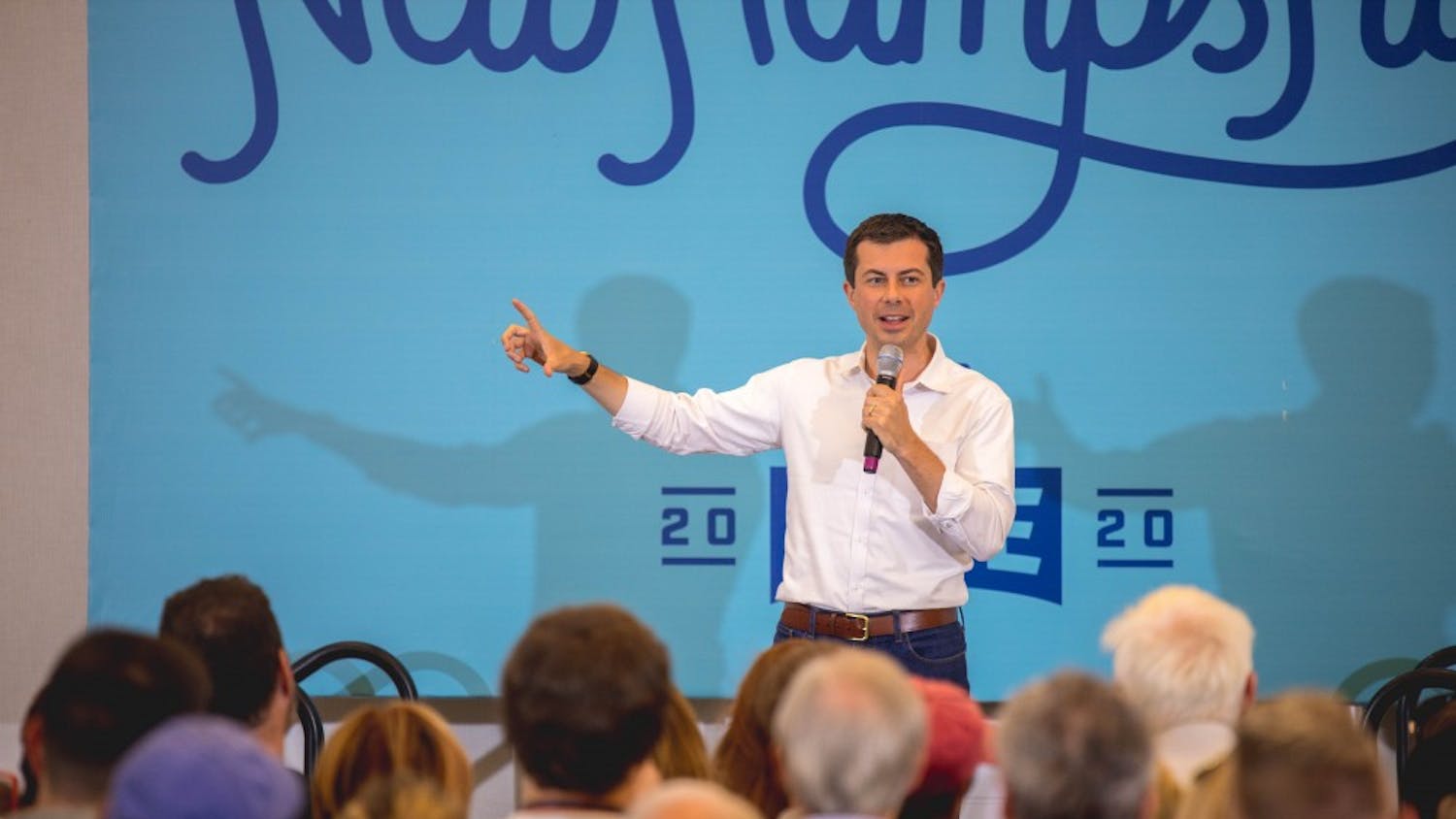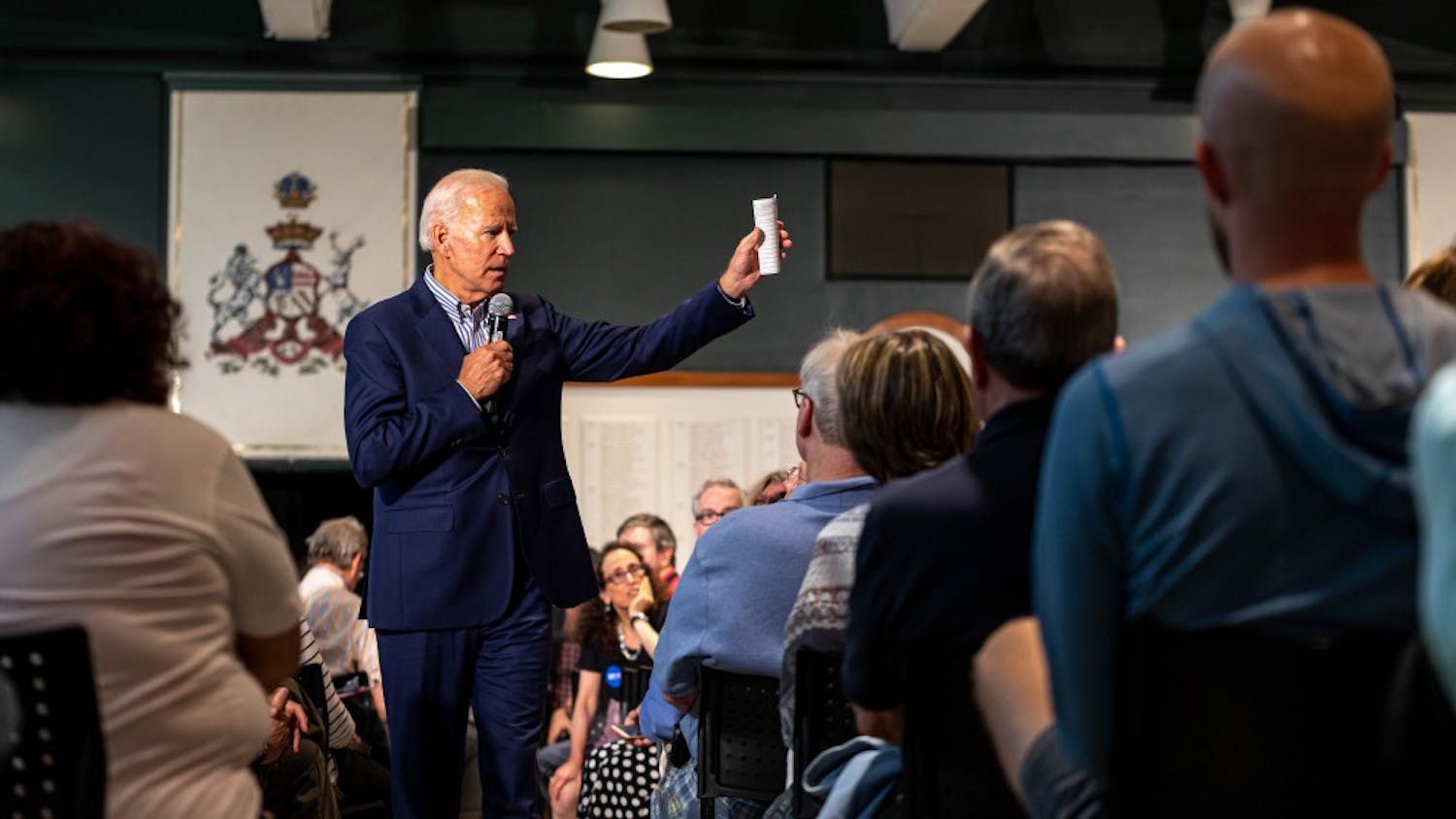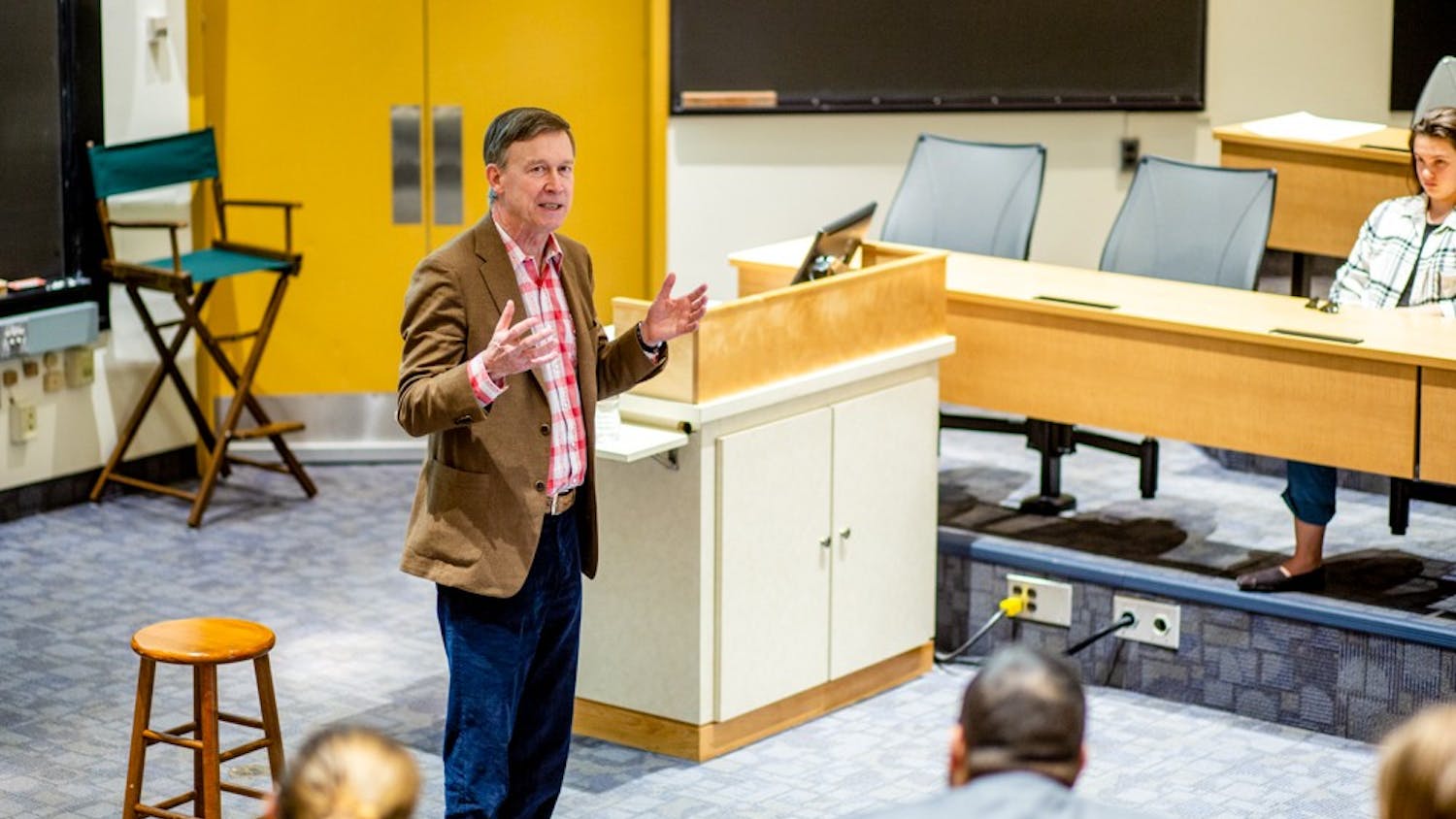LEBANON — Democratic presidential candidate Pete Buttigieg held a town-hall style forum at Lebanon Middle School on Saturday as part of a multi-stop bus tour of New Hampshire. Speaking to over 1,300 attendees, the event was the South Bend, IN mayor’s largest crowd in New Hampshire thus far, according to Buttigieg’s New Hampshire communications director Kevin Donohue.
Following the event, The Dartmouth rode with Buttigieg on his campaign bus to Franklin, NH, where he held another campaign event.
When asked how he balances appealing to voters from across the age spectrum, Buttigieg said that he believes there is a unity that comes with concern for the future. Young voters fear for their own future and older voters fear for their grandkids, he said. He added that his traction with older voters has existed since his mayoral campaign and that older voters were likely to say his young age was a plus.
Further, Buttigieg spoke about how his religious journey intensified following his return from deployment and how he struggled with the morality of some actions of his military career.
Buttigieg said he was drawn to his faith because of its progressive roots and that religion does not belong to just one political party.
“This is the right time to remind people of faith in this country that being religious can lead you in a lot of directions and not just the right,” Buttigieg said.
During the Lebanon event, Buttigieg spoke briefly, covering topics including climate action, religion, health care and immigration. His speech was followed by a question-and-answer session where he expanded upon the ideas of bipartisan collaboration and an intergenerational alliance.
He began by inviting the audience to envision “the day after Trump,” with a reference to the ongoing impeachment process that earned him cheers and applause.
“Picture, as vividly as possible, something that is going to happen in the future,” Buttigieg said. “That is, the first day the sun comes up over this country, and Trump is no longer the president of the United States. It’s gonna happen one way or the other and it’s gonna be a good day.”
Buttigieg’s speech frequently touched on the idea of protecting the nation for future generations. He detailed his vision for gun policy reform and education reform and referred to climate action as the “global security challenge of our time.”
He also spoke about the origins of the United States as a nation that honors diversity, one that he said was founded upon the principle that the Constitution belongs to people of all religions and no religion equally. Buttigieg said that regardless of his religious convictions, the American people should expect a moral president.
“Let me say this to all those who are guided by moral principles rooted in their faith,” Buttigieg said. “You can expect from my White House, a Washington that you don’t have to look at and scratch your head and think, ‘Whatever happened to [the biblical refrain] I was hungry and you fed me, I was a stranger and you welcomed me?’”
He also called for election process reform through securing voting rights, ending gerrymandering, eliminating racial barriers to voting and reforming campaign finance laws — speaking out against the Supreme Court’s landmark decision in Citizens United v. Federal Election Commission and condemning New Hampshire House Bill 1264, a law which has been criticized for potentially limiting the ability of college students to vote in the state.
Buttigieg said he believed there are areas where the government must not overstep and could play a smaller role. He alluded to his belief in reproductive rights for women — including access to abortion — and his “Medicare for All Who Want It” health care plan.
“The idea is making sure we take a version of Medicare and set it up to where every American can get in on it,” Buttigieg said. “But I’m not gonna assume it’s the right plan for you. I think it could be, but I’ll trust you to figure that out.”
Buttigieg was introduced by former Lebanon mayor Sue Prentiss, who spoke on the importance of New Hampshire and why she backed the mayor.
“Our nation is broken and I can’t stop thinking about a day when we’re united again, when our next president knows how to be in government and is working for the people,” Prantiss said. “And I believe that president is Pete Buttigieg.”
Buttigieg said his plan for uniting the American people involves reviving common American values, which he said have been used by the current administration to divide us.
“Democracy is a set of values,” Buttigieg said. “Take, for example, the value of patriotism, the idea of love of country. That’s supposed to be something that all of us can participate in. There’s gotta be more to it than cheap nationalism. I’m talking about a love of country rooted in the knowledge that our country is made up of people, and you cannot love our country if you hate half of the people in it.”
Buttigieg has made strides in the packed Democratic primary field since last speaking in the Upper Valley over the summer. Based on national polls, Buttigieg is in fourth place, but in the early-voting states of Iowa and New Hampshire, Buttigieg regularly polls close to former vice president Joe Biden, Sen. Elizabeth Warren (D-MA) and Sen. Bernie Sanders (I-VT). A recent Quinnipiac poll in New Hampshire, for example, finds Buttigieg earning 15 percent of Democratic voters, about even with Sanders and Warren and five points behind Biden.
Jasper Meyer ’22, who attended the Lebanon town hall and is from the area, said he has been considering Buttigieg and said he felt more confident about voting for him after hearing him speak.
“I was impressed by how he captured the audience and connected all the key issues with a narrative centered around unity,” Meyer said. “I was hesitant to get wholeheartedly behind Pete a few months ago because I wasn’t sure if he had a chance at receiving the nomination, but seeing the recent polling gives me hope that he has a shot in Iowa and New Hampshire.”




